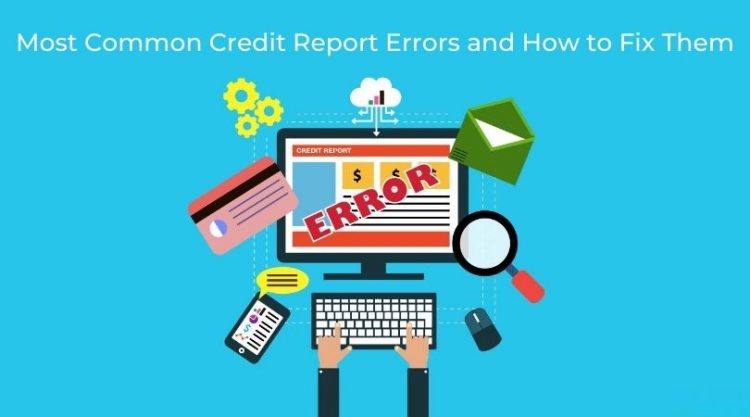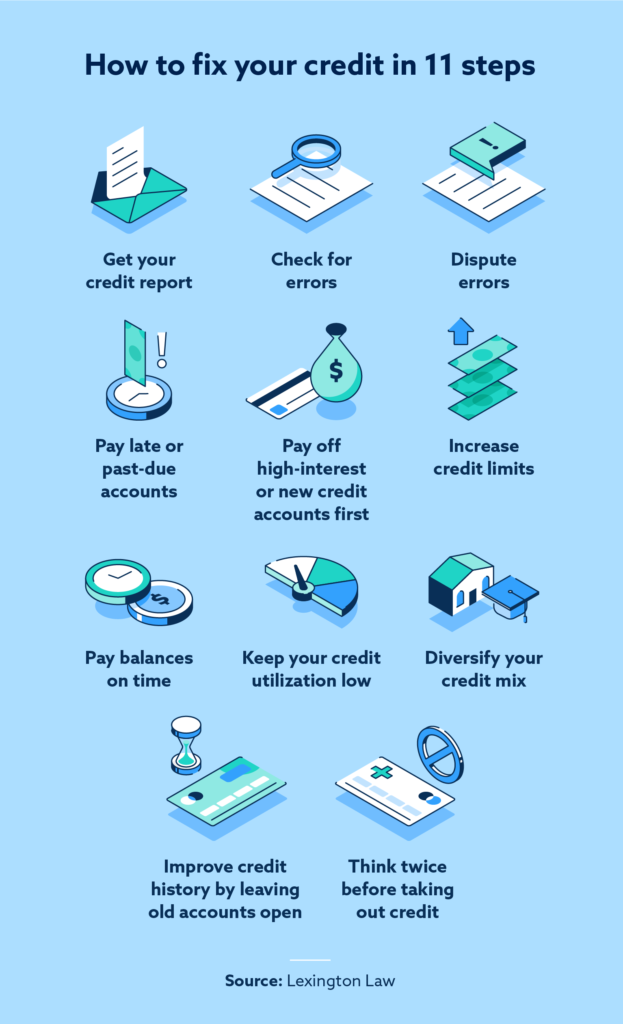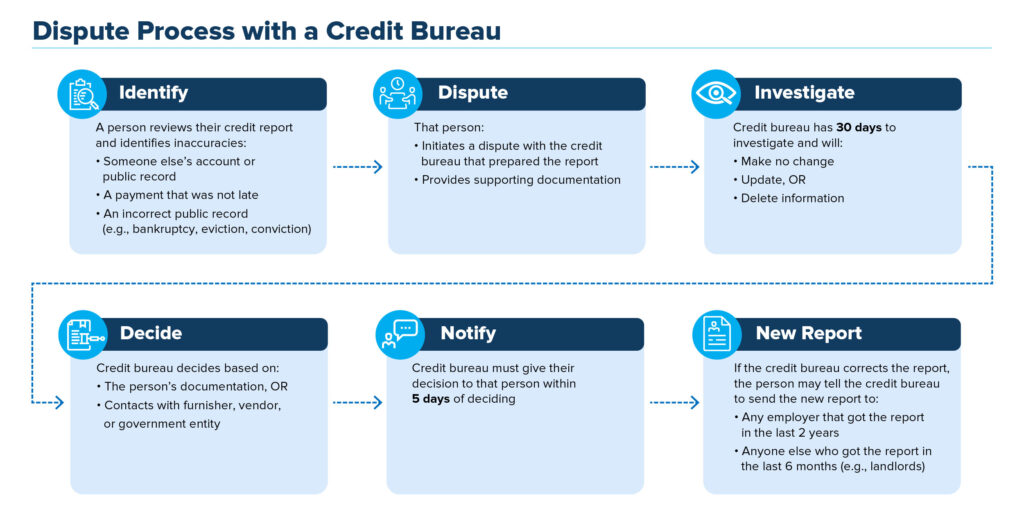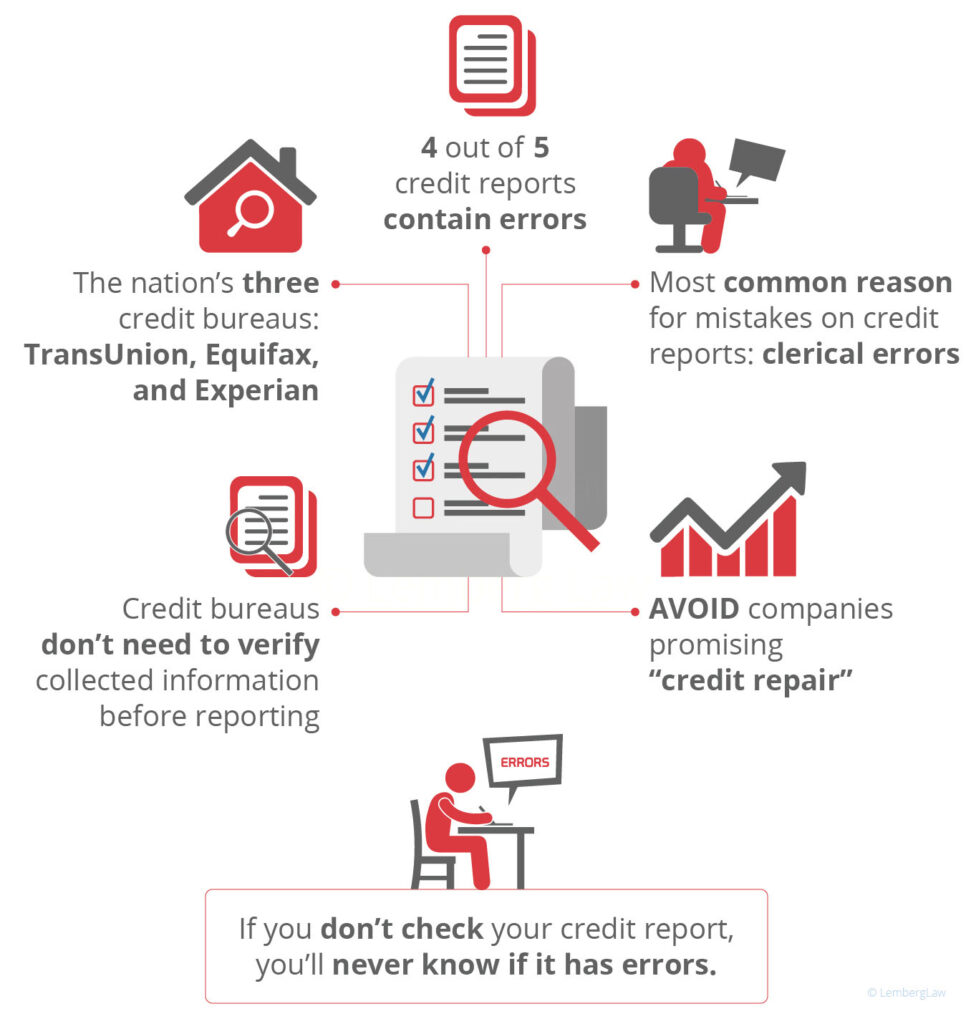In this article, we’re going to dive into a topic that affects all of us: credit report errors. Yes, they’re frustrating, but don’t worry – we’ve got you covered! We’ll explore the 10 most common credit report errors and provide you with actionable steps on how to fix them. So, if you’re ready to take control of your credit and improve your financial well-being, keep reading!
In this article, we’ll provide you with valuable information on the basics of credit scores, debunking common credit repair myths, and understanding the importance of building credit. We’ll also tackle specific topics like late payments, collections, and charge-offs. Additionally, we’ll discuss the pros and cons of hiring credit repair companies versus doing it yourself, and share tips on improving your creditworthiness along the way. So, get ready to learn, take notes, and start your journey towards better credit health!
Introduction to Credit Report Errors
Your credit report plays a crucial role in your financial well-being. It is a detailed record of your credit history, encompassing information about your borrowing and repayment habits. However, credit report errors can occur and have a significant impact on your credit scores. In this article, we will explore the common types of credit report errors, their consequences, and the steps you can take to fix them.
Understanding the Basics of Credit Reports
Before diving into credit report errors, it is essential to have a good understanding of what a credit report is and why it is vital. A credit report is a document that contains information about your credit history, including your payment history, outstanding debts, and credit limits. Lenders, landlords, and employers often rely on credit reports to make informed decisions about your creditworthiness.

This image is property of credittriangle.com.
Identifying Common Credit Report Errors
- Inaccurate Personal Information
One common credit report error is inaccurate personal information. This may include misspelled names, incorrect addresses, or inaccurate Social Security numbers. While these errors may seem minor, they can still have a negative impact on your credit scores.
- Erroneous Account Information
Another type of credit report error is erroneous account information. This can include accounts that do not belong to you or accounts that have been closed but are still listed as open. These errors can make it challenging for lenders to assess your creditworthiness accurately.
- Duplicate Accounts
Duplicate accounts are also a common credit report error. This occurs when the same account is listed multiple times, making it appear as if you have more debt than you actually do. It is crucial to address these errors as they can negatively impact your credit scores.
- Misreported Late Payments
Credit report errors can also manifest in the form of misreported late payments. If you have made timely payments but they are incorrectly recorded as late, it can significantly lower your credit scores. It is essential to identify and correct these errors promptly.
- Incorrect Credit Limits
In some cases, credit report errors may involve incorrect credit limits. Your credit limit is the maximum amount you can borrow on a particular credit account. If this information is inaccurate, it can impact your credit utilization ratio, which is a key factor in determining your credit scores.
- Inclusion of Closed Accounts
Credit reports should accurately reflect your current credit situation. However, errors can occur when closed accounts are still included in your credit report. It is essential to have these accounts correctly updated to avoid any negative impact on your credit scores.
- Fraudulent Accounts
Lastly, credit report errors can involve the inclusion of fraudulent accounts. Identity theft and fraud are unfortunate realities in today’s world, and they can wreak havoc on your credit report. It is crucial to identify and dispute any fraudulent accounts promptly.
Negative Consequences of Credit Report Errors
Credit report errors can have various negative consequences, including:
- Lower Credit Scores
Credit report errors can lead to lower credit scores as they may misrepresent your creditworthiness. Lower credit scores can make it more challenging to secure loans, obtain credit, and obtain favorable interest rates.
- Difficulty in Obtaining Loans and Credit
When lenders review your credit report and see errors, they may be hesitant to approve your loan or credit application. These errors can raise concerns about your creditworthiness, making it more difficult to secure the funding you need.
- Higher Interest Rates
Credit report errors can also result in higher interest rates. Lenders often use credit reports to assess the risk associated with lending to you. If errors negatively impact your perceived creditworthiness, lenders may charge higher interest rates to compensate for the perceived risk.
- Negative Impact on Employment Opportunities
Some employers conduct credit checks as part of the hiring process. If credit report errors inaccurately reflect your creditworthiness, it could lead to missed employment opportunities. This is particularly true for roles that require financial responsibility or access to sensitive financial information.

This image is property of www.moneytap.com.
Steps to Fix Credit Report Errors
If you discover errors on your credit report, there are several steps you can take to fix them:
- Obtaining a Free Copy of Your Credit Report
To begin the process of fixing credit report errors, you must first obtain a free copy of your credit report. You are entitled to one free copy from each of the three major credit bureaus – Equifax, Experian, and TransUnion – every 12 months.
- Thoroughly Reviewing the Credit Report
Once you have obtained your credit report, carefully review it for any potential errors. Take note of any incorrect personal information, account discrepancies, or any other red flags that may indicate an error.
- Gathering Supporting Documentation
To support your dispute, gather any necessary documentation that can validate your claims. This may include copies of payment receipts, account statements, or any other evidence that contradicts the information on your credit report.
- Submitting a Dispute to Credit Bureaus
Contact the credit bureaus in writing to dispute the errors. Include a clear explanation of each error and provide any supporting documentation. Be sure to send your dispute via certified mail with a return receipt to ensure it is received.
- Following Up on the Dispute
After submitting your dispute, it is crucial to follow up with the credit bureaus to ensure they are processing your claim. Keep track of all correspondence and maintain a record of the dates and times of your follow-ups.
- Monitoring the Resolution
Once the credit bureaus have acknowledged your dispute, monitor the resolution process closely. The credit bureaus have 30 to 45 days to investigate your claim and make any necessary corrections to your credit report. Continue to review your credit report regularly to ensure the errors have been rectified.
Common Challenges in Fixing Credit Report Errors
Fixing credit report errors can sometimes be a complex and frustrating process. Here are some common challenges you may encounter:
- Lack of Knowledge about the Dispute Process
Many individuals are unfamiliar with the dispute process and may not know where to start. Educate yourself on the necessary steps to ensure you are well-prepared to tackle the challenges that may arise.
- Difficulty in Obtaining Required Documentation
In some cases, obtaining the necessary documentation to support your dispute can be challenging. Keep detailed records of your financial transactions and maintain copies of key documents to simplify the process.
- Dealing with Unresponsive Credit Bureaus
Credit bureaus are required by law to investigate and correct credit report errors. However, they may not always be responsive or prompt in their actions. Persistence and clear communication can help navigate these challenges.
- Prolonged Dispute Resolution Timelines
The dispute resolution process can take time, and it may require multiple rounds of correspondence with the credit bureaus. Patience is key during this process, as it may take several weeks or even months to rectify the errors.

This image is property of www.lexingtonlaw.com.
Hiring Professional Credit Repair Companies
If you feel overwhelmed or unsure about navigating the credit repair process on your own, you may consider hiring a professional credit repair company. These companies specialize in helping individuals address credit report errors and improve their credit scores. However, it is essential to consider the following:
- Benefits of Hiring Professional Credit Repair Companies
Professional credit repair companies have experience and expertise in dealing with credit bureaus and navigating the dispute process. They can handle the communication and paperwork on your behalf, potentially saving you time and effort.
- Considerations when Choosing a Credit Repair Company
When selecting a credit repair company, do thorough research to ensure they are reputable and legitimate. Check online reviews, ask for referrals, and verify their credentials and certifications. It is crucial to choose a company that has a proven track record of success.
- Costs and Fees Associated with Professional Credit Repair Services
Credit repair services usually come with fees. Before hiring a professional company, make sure you understand the costs involved. Compare pricing structures and ensure that the potential benefits outweigh the expenses.
DIY Credit Repair Tips
While hiring a professional credit repair company can be beneficial, it is possible to handle credit report errors on your own. Here are some tips for DIY credit repair:
- How to Dispute Credit Report Errors on Your Own
Follow the steps we discussed earlier to dispute credit report errors yourself. Obtain your credit report, review it carefully, gather supporting documentation, and submit your dispute to the credit bureaus.
- Mailing Dispute Letters to Credit Bureaus
When submitting your dispute, send a formal dispute letter to each of the credit bureaus. Clearly state the errors and provide any evidence or supporting documentation. Keep copies of these letters for your records.
- Keeping Track of Correspondence
Maintain a detailed record of all correspondence with the credit bureaus. This includes the dates and times you mailed your dispute letters, any phone conversations or emails, and any responses you receive. This documentation can be crucial if you need to escalate your dispute.
- Utilizing Consumer Protection Laws
Familiarize yourself with consumer protection laws, such as the Fair Credit Reporting Act (FCRA) and the Fair Debt Collection Practices Act (FDCPA). These laws outline your rights and provide guidelines for disputing credit report errors.

This image is property of consumer.ftc.gov.
Preventing Future Credit Report Errors
While it is essential to address current credit report errors, it is equally important to take steps to prevent future errors. Here are some strategies to consider:
- Regularly Monitoring Your Credit Reports
Make it a habit to check your credit reports regularly. By monitoring your credit reports, you can identify and address errors promptly.
- Checking for Inaccuracies and Addressing Them Promptly
When reviewing your credit reports, be on the lookout for any inaccuracies or inconsistencies. If you spot an error, take immediate action to dispute and correct it.
- Maintaining Good Financial Habits to Avoid Errors
Establishing and maintaining good financial habits can go a long way in preventing credit report errors. Pay your bills on time, keep your credit utilization low, and regularly review your account statements for any discrepancies.
Conclusion
Fixing credit report errors is crucial for your financial well-being. By understanding the common types of credit report errors, their consequences, and the steps to resolve them, you can take control of your credit history. Whether you choose to handle the process yourself or enlist the help of a professional credit repair company, the important thing is to advocate for the accuracy of your credit report. By taking proactive steps to address credit report errors, you can improve your credit scores, enhance your financial opportunities, and ultimately empower yourself on your path to financial success.

This image is property of lemberglaw.com.
